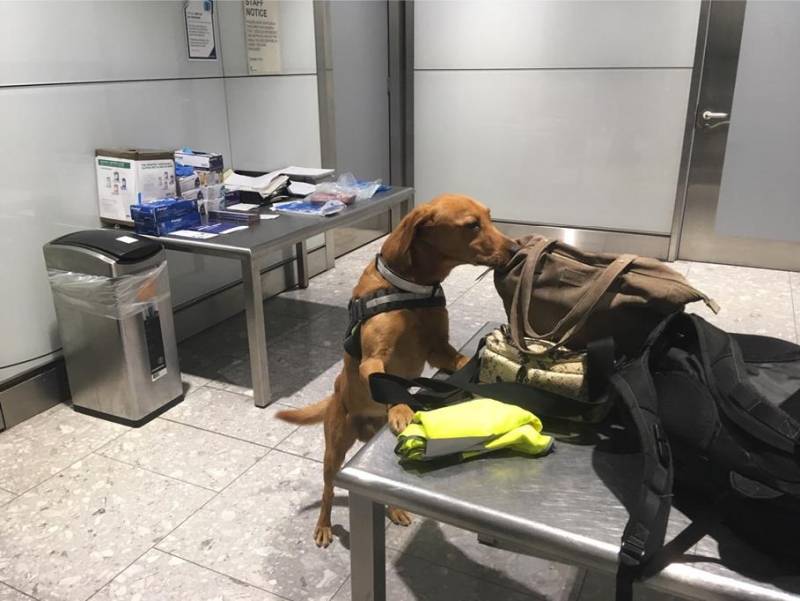Sniffer dogs combat swine fever threat at UK borders

Sniffer dogs are being used at the UK border in an effort to combat the growing threat of African swine fever entering the country.
UK Border officials enforce controls at the border on illegal meat by using sniffer dogs and searching freight, passengers and luggage.
They are ordered by the government to seize and destroy illegally imported meat products.
The disease is highly contagious and the virus can survive in pork meat products, even if cooked or frozen.
This morning (3 October), Biosecurity Minister Lord Gardiner and the UK Chief Vet visited Heathrow Airport to find out more about the work of Border Force and their sniffer dogs.
The exercise was focused on passenger arrivals directly from South East Asian countries, where African swine fever is prevalent.
Biosecurity Minister Lord Gardiner said: “It is essential that we keep African swine fever out of the UK and I would like to thank Border Force colleagues for taking the time to show us all they do to prevent infected pork meat products arriving on our shores.
“While there has never been an outbreak of African swine fever in the UK, we are not complacent and already have robust measures in place to protect against animal disease outbreaks.”
The disease, which poses no threat to human health but is fatal for pigs, has already spread widely across Asia – including China and Vietnam – and parts of Europe.
ASF has led to the deaths of over 800,000 pigs and wild boar in Europe and an estimated four million pigs in Asia, causing global pork prices to rise.
If the disease was found in this country, it could have a devastating impact on the UK’s commercial pig stock of five million pigs, as well as the trade of our pork products.
In July, Defra launched a new campaign at the UK’s border to help keep the damaging animal disease out of the country.
The department has also written to universities to ask them to contact international students about not bringing in meat products when they come to the UK to study.








